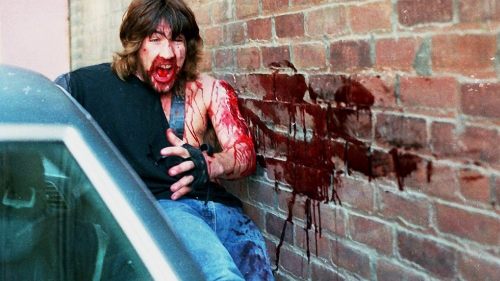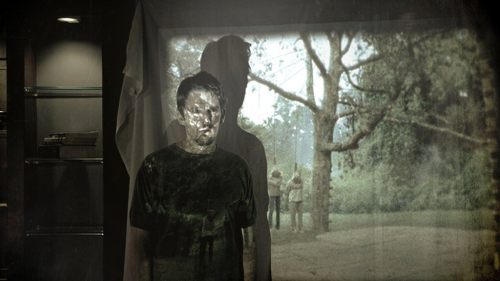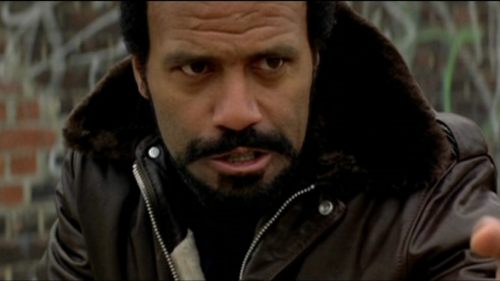The Savage Stack - GORDON’S WAR (1973)
There’s always going to be – for lack of a better term – a stack of films we’ve been meaning to get to. Whether it’s a pile of DVDs and Blu-rays haphazardly amassed atop our television stands, or a seemingly endless digital queue on our respective streaming accounts, there’s simply more movies than time to watch them. This column is here to make that problem worse. Ostensibly an extension of Everybody’s Into Weirdness (may that series rest in peace), The Savage Stack is a compilation of the odd and magnificent motion pictures you probably should be watching instead of popping in The Avengers for the 2,000th time. Not that there’s anything wrong with filmic “comfort food” (God knows we all have titles we frequently return to when we crave that warm and fuzzy feeling), but if you love movies, you should never stop searching for the next title that’s going to make your “To Watch” list that much more insurmountable. Some will be favorites, others oddities, with esoteric eccentricities thrown in for good measure. All in all, a mountain of movies to conquer.
The seventy-first entry into this unbroken backlog is Ossie Davis' vets vs. dope pushers Blax action classic, Gordon's War...

Cotton Comes To Harlem ('70) was actor Ossie Davis’ directorial debut. Based on Chester Himes’ novel of the same name, it's an early (and exemplary) entry into the Blaxploitation canon, albeit with a slightly higher budget than many pictures of its ilk ($1.2 mil, compared to the $500,000 that went into Sweet Sweetback's Baadasssss Song ['71]). Sporting an incredible cast – Redd Foxx, Cleavon Little, and Judy Pace – Davis' movie is both slyly humorous and wholly tragic, following one man's swindling of his people via the revolutionary "return to Africa" movement that overtook pockets of black activism during the early '70s. Davis was commenting on his community's blind desperation, terrified and saddened not only by the con man's existence, but also those who buy into his bullshit. Though the picture also contains the genre-requisite car chases and T&A, it was as much a work of protest as it was a piece of pure entertainment.
Davis' follow-up – the bluntly titled melodrama Black Girl ('72) – eschewed Blax tropes, opting instead to tackle a character study head on. A former playwright himself, Davis based his picture on the off-Broadway stage drama by J. E. Franklin, which tells the tale of a young girl’s desire to become a dancer, despite being a high school dropout and facing ridicule from her half-sisters. The movie was a commercial and critical failure, but was still bursting at the seams with naturalism, as well as Davis' trained eye for capturing New York neighborhoods in all of their detail, good and bad. When combined with Cotton Comes To Harlem, his filmography was doubling as a time capsule, in which the realities of black existence during the '70s were frozen on celluloid for all to witness.
Frustrated by the failure of Black Girl, Davis returned to pure Blax and produced a film that – while not nearly as influential as Cotton Comes to Harlem – may actually best that beast in the diversion department. Gordon's War ('73) is a blisteringly angry men on a mission movie, only instead of sending its platoon of Vietnam vets across enemy lines on some overseas Black Ops mission, it chooses to have them clean up the streets of Harlem. It's a scorching action picture, as Paul Winfield becomes the black precursor to Major Charles Rane (from John Flynn and Paul Schrader's all-timer revenge romp, Rolling Thunder ['77]), a soldier who’s lost everything to the profits of bad men, and is now looking to wipe all the pushers out of a neighborhood he no longer recognizes.
Gordon Hudson (Winfield) returns from 'Nam to find his wife has died from a heroin overdose. In fact, we first meet the soldier as he solemnly stands over her grave, quietly seething with anger. Instead of merely mourning her demise, Gordon recruits three platoon buddies – Bee Bishop (Carl Lee), Roy Green (Tony King), and Otis Russell (David Downing) – to wreak havoc on the criminals who've been pumping poison into Harlem's veins since they left. Together, the squad devises and executes a plan, step by step, using their training to mark and harass hustlers, before disrupting the supply chain of heroin that keeps dealers like Big Pink (Nathan C. Heard) and Spanish Harry (Gilbert Lewis) rolling in dough. There's no emotion shown on any of the grunts' part. This is an assignment that must be carried out, for a greater good that transcends even the hurt that Hudson feels in his heart.
It’s somewhat surprising that Gordon's War isn’t uttered in the same breath as other pure pulp Blax works such as Shaft ('71) or Superfly ('72), because Davis directs the movie with a blunt matter of fact eye that still stops and lets us soak in the graffiti that dots Harlem's dilapidated buildings and feel the wood of a ghetto bar top under our palms. Just as his other pictures were capturing a distinct period in American history, Gordon's War details an urban war zone in decline, after many of its best men died fighting in a conflict they didn't care about. Winfield's absolutely electric as a leader who's got has nothing left to lose, and who’s so loved by his friends, they’re willing to die for him and his cause. In a way, Gordon becomes a stand-in for the values that were lost once unseen white fat cats targeted his community as an anti-human cash machine, a way of life devalued in the name of big business.
Davis does well to detail just how committed these fighters are to the craft of hunting and killing their enemy, transferring the skills they earned in combat to destroy the domestic terrorists known as drug pushers. They set up a perimeter around the neighborhood, keeping tabs on the various couriers and enforcers, marking cars with infrared paint before systematically hitting each and every one. Of course, as soon as their actions take a major toll on the bottom line, Mafia fat cats and corporate suits who're invested in keeping the ghetto filled with death start to take more drastic measures, escalating the conflict until bodies are dropping in numerous gun fights. It all ends in an absolutely exhilarating car and motorcycle chase that rivals The French Connection ('71) as it burns across the George Washington Bridge. Though Davis is clearly making a statement about urban plight, he's melting your face off in the process.
However, it's Davis' eye for authenticity that mostly defines Gordon's War. All of the actors were allowed to choose their own wardrobe, and many of the scenes were shot "live", with director of photography Victor J. Kemper (Dog Day Afternoon ['75]) aiming his camera from across the street, or perched atop a roof. The extras were actual Harlem residents, interacting with the performers as these explosive scenes play out. Because above all else, Davis was making sure that the black men and women of NYC were represented in the way they actually lived. While Angelo Badalamenti's score swells, we witness a near perfect melding of grimy pulp with a documentarian's eye for faces and environments, marking Gordon's War as one of the most valuable works to come out of '70s Blaxploitation.
Gordon's War is available now on DVD, courtesy of Shout! Factory.



